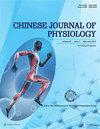Prostaglandin F2 receptor inhibitor overexpression predicts advanced who grades and adverse prognosis in human glioma tissue
IF 1.6
4区 医学
Q4 PHYSIOLOGY
引用次数: 0
Abstract
Prostaglandin F2 receptor inhibitor (PTGFRN) promotes neoplastic cell migration and metastasis in some human cancers. However, the role of PTGFRN in human gliomas is still undetermined. First of all, PTGFRN messenger ribonucleic acid (mRNA) overexpression correlated with some poor prognostic factors of glioma after analyzing The Cancer Genome Atlas and Chinese Glioma Genome Atlas database. In order to detect the effect of PTGFRN expression on tumor characteristics of gliomas, U87MG, LN229, and glioblastoma 8401 glioma cell lines were cultured and prepared for western blot analysis and real-time polymerase chain reaction, respectively. The results revealed the overexpression of PTGFRN in all glioma cell lines as compared to normal brain cells. In addition, PTGFRN immunohistochemical (IHC) staining was performed on two sets of glioma tissue microarrays. Consistent with the results of in vitro studies, cytoplasmic PTGFRN immunostaining scores positively correlated with tumor grades and poor prognosis of gliomas. Therefore, PTGFRN IHC staining may be useful for the evaluation of tumor grades and overall survival time to facilitate the tailoring of appropriate treatment strategy. PTGFRN may serve as a potential pharmacologic target for the suppression of gliomagenesis.前列腺素F2受体抑制剂过表达预测人脑胶质瘤组织中晚期who分级和不良预后
前列腺素F2受体抑制剂(PTGFRN)促进某些人类癌症中肿瘤细胞的迁移和转移。然而,PTGFRN在人脑胶质瘤中的作用尚不明确。首先,通过分析癌症基因组图谱和中国胶质瘤基因组图谱数据库,PTGFRN信使核糖核酸(mRNA)过度表达与胶质瘤的一些预后不良因素相关。为了检测PTGFRN表达对胶质瘤肿瘤特征的影响,培养U87MG、LN229和胶质母细胞瘤8401胶质瘤细胞系,并分别制备用于蛋白质印迹分析和实时聚合酶链反应。结果显示,与正常脑细胞相比,PTGFRN在所有神经胶质瘤细胞系中都过表达。此外,在两组神经胶质瘤组织微阵列上进行PTGFRN免疫组织化学(IHC)染色。与体外研究结果一致,细胞质PTGFRN免疫染色评分与胶质瘤的肿瘤分级和不良预后呈正相关。因此,PTGFRN IHC染色可能有助于评估肿瘤分级和总生存时间,以便于制定适当的治疗策略。PTGFRN可以作为抑制胶质瘤的潜在药理学靶点。
本文章由计算机程序翻译,如有差异,请以英文原文为准。
求助全文
约1分钟内获得全文
求助全文
来源期刊
CiteScore
2.30
自引率
5.60%
发文量
36
审稿时长
6-12 weeks
期刊介绍:
Chinese Journal of Physiology is a multidisciplinary open access journal.
Chinese Journal of Physiology (CJP) publishes high quality original research papers in physiology and pathophysiology by authors all over the world. CJP welcomes submitted research papers in all aspects of physiology science in the molecular, cellular, tissue and systemic levels. Multidisciplinary sciences with a focus to understand the role of physiology in health and disease are also encouraged.
Chinese Journal of Physiology accepts fourfold article types: Original Article, Review Article (Mini-Review included), Short Communication, and Editorial. There is no cost for readers to access the full-text contents of publications.

 求助内容:
求助内容: 应助结果提醒方式:
应助结果提醒方式:


